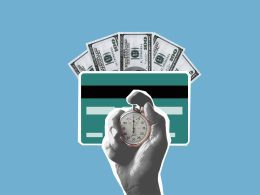In the realm of personal finance, few tools are as powerful and fundamental as the budget. A budget serves as a roadmap for your financial journey, providing direction, discipline, and control over your money. It’s not merely about tracking expenses; rather, it’s a proactive strategy to allocate resources effectively, prioritize spending, and achieve your financial goals. In this article, we delve into the art of budgeting, exploring its significance, strategies for effective budgeting, and how it empowers individuals to take control of their finances.
Why Budgeting Matters

Finances
Budgeting is the cornerstone of financial stability and success. Without a budget, individuals risk overspending, accumulating debt, and failing to save adequately for the future. A well-crafted budget offers numerous benefits, including:
- Financial Awareness: Budgeting fosters a deeper understanding of your income, expenses, and overall financial situation. It sheds light on spending patterns, areas of excess, and opportunities for savings.
- Goal Setting and Achievement: By creating a budget, you can set specific financial goals, whether it’s saving for a down payment on a house, paying off debt, or building an emergency fund. A budget provides the framework to allocate resources toward these objectives systematically.
- Debt Management: For many individuals, debt is a significant financial burden. Budgeting allows you to allocate funds toward debt repayment, accelerating your journey toward financial freedom.
- Emergency Preparedness: Life is unpredictable, and unexpected expenses can arise at any time. A budget helps you build an emergency fund, providing a financial safety net during challenging times.
- Peace of Mind: With a budget in place, you gain a sense of control over your finances. Rather than feeling overwhelmed or anxious about money, you can approach financial decisions with confidence and clarity.
Strategies for Effective Budgeting
Creating a budget is not a one-size-fits-all endeavor. It requires personalized strategies tailored to individual circumstances, financial goals, and lifestyle preferences. Here are some key strategies for effective budgeting:
- Track Your Expenses: Begin by documenting your income and expenses. This may involve reviewing bank statements, receipts, and bills to understand where your money is going.
- Establish Clear Goals: Determine your short-term and long-term financial objectives. Whether it’s paying off debt, saving for retirement, or taking a dream vacation, articulate your goals to guide your budgeting process.
- Differentiate Needs from Wants: Differentiating between essential expenses (needs) and discretionary spending (wants) is crucial. Focus on covering needs first, then allocate remaining funds toward wants based on your priorities.
- Create Categories and Allocate Funds: Organize your expenses into categories such as housing, transportation, groceries, utilities, entertainment, and savings. Allocate a specific amount of money to each category based on your budgeting goals.
- Review and Adjust Regularly: A budget is not static; it requires regular review and adjustment. Monitor your spending regularly and make adjustments as needed to stay on track with your financial goals.
Comparative Analysis of Budgeting Methods
| Budgeting Method | Description | Pros | Cons |
|---|---|---|---|
| Traditional Budgeting | This method involves estimating income and expenses for a set period, typically monthly, and comparing actual spending to the budgeted amounts. | Provides a clear framework for managing finances. Helps identify areas of overspending. | May be time-consuming to track and categorize expenses. Requires discipline to stick to the budget. |
| Zero-Based Budgeting | With this method, every dollar of income is allocated to specific categories or expenses, leaving zero unallocated funds. | Ensures that every dollar has a purpose, minimizing waste. Encourages intentional spending. | Requires meticulous planning and tracking of expenses. May be less flexible than other methods. |
| Envelope System | In this cash-based method, individuals allocate cash to different envelopes designated for specific spending categories. Once the envelope is empty, no more spending is allowed in that category. | Provides a tangible and visual way to manage spending. Helps curb impulse purchases. | Less convenient for online or card-based transactions. May require discipline to adhere to cash-only spending. |
Conclusion
Mastering the art of budgeting is essential for anyone seeking financial stability and prosperity. By embracing budgeting principles, individuals can take control of their finances, align spending with priorities, and work toward their long-term goals. Whether through traditional budgeting methods or innovative approaches, the key lies in creating a budgeting strategy that suits your lifestyle and empowers you to make informed financial decisions. Remember, a budget is not a restriction; it’s a tool for financial empowerment and freedom. Start budgeting today and pave the way toward a brighter financial future.












